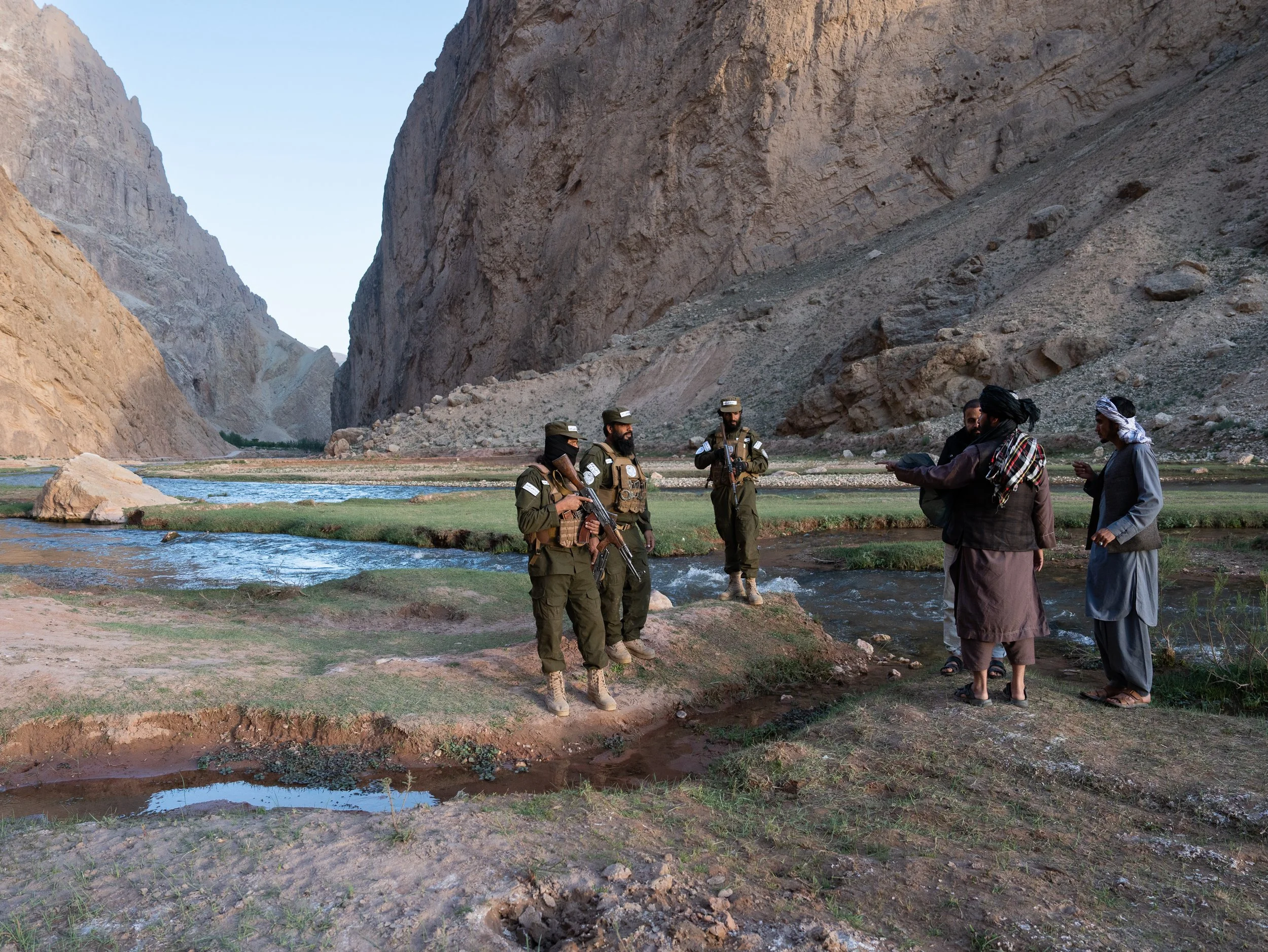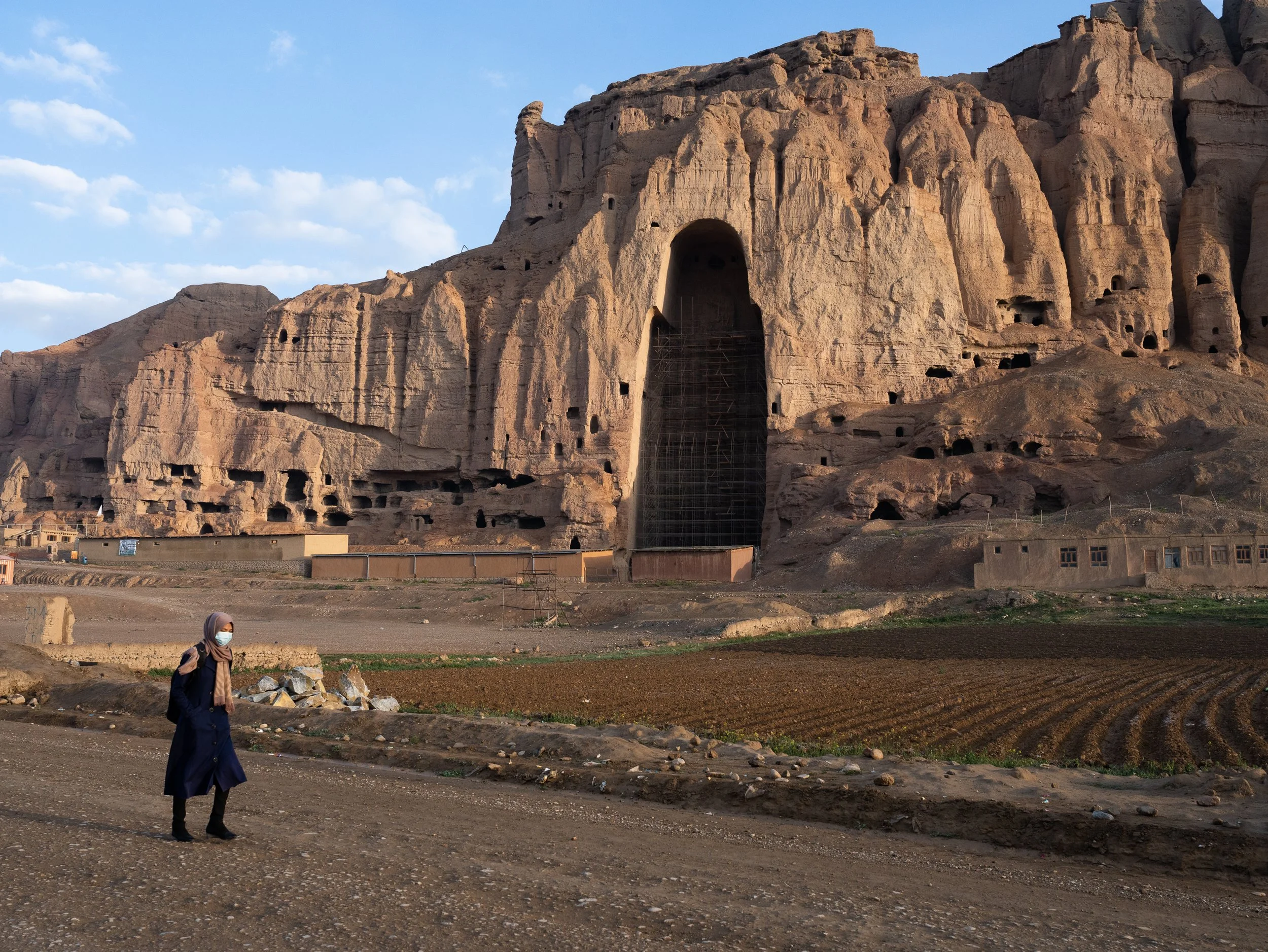Travelling independently in Afghanistan?
One of the most commonly asked questions I see being asked online is if independent travel to Afghanistan is safe. For lots of travel vloggers and adventurous backpackers, the country seems a new frontier ready for exploration and to an extent they are right.
As someone who established a career in photojournalism by going exactly to all the places that everyone advised me against, it would be hypocritical for me to advise the bold to stay away.
I also wouldn’t want anyone to think that I had a vested interest in protecting myself as tour operator and so I’ve written what I hope you accept as my honest thoughts on travelling independently in Afghanistan as of May 2023!
I also appreciate that for many (including myself) going on a ‘tour’ of anywhere feels like it takes all the fun away from everything we love about travel. I want to wonder round the bazaar, chat to locals, shakes hands and make friends without a ‘guide’ peering over my shoulder and telling me which kebab will make me sick. I want to find out myself. It’s also why I hope our tours are as collaborative, flexible and informal as possible, but this article isn’t about us!
The Strange Situation with Afghan Tourist Visas
In pure legal terms foreign travellers require an invitation from a licensed tourist company (ATO) to get a visa to Afghanistan. The company coordinates this process with the Ministry of Foreign Affairs (MoFA), who approve the application and at that point the embassy of your choice issues your visa.
The problem is that the current Taliban government is not in control of most of it’s foreign embassies and consulates. They are staffed and run by members of the former internationally recognised government, who no longer have any communication with the MoFA. Some embassies have decided to stop issuing tourist visas, some have decided to issue them to anyone who wants one as they are short of cash, some have decided to vaguely follow the former regime’s rules and require an invitation letter from an ATO company (this is the current situation in London).
It means that most determined independent travellers can find a way to get themselves visa, and will find themselves welcomed though Kabul airport without the Taliban government ever approving your visit. A steady trickle of foreign tourists seem to turn up at the airport formerly known as Hamid Karzai International Airport every day using this method.
Travelling Between Provinces and the Paperwork Headaches
This is where things are starting to get complicated. When Kabul fell in August 2021, what followed was a period of celebration. The Taliban were euphoric – they had spent 20 years fighting and were finally back in control of the country.
A few bold travellers started making their way round the country and popping up in places that would have been completely impossible before. Kebab in Kandahar was on the menu. Solo female travellers were popping up in Sangin on public transport, and Taliban officials were totally befuddled at what to do with them.
During this period there were few rules. Checkpoints were utterly confused at what to do with foreign travellers. Generally speaking they waved them through – the country was at peace again and they were victorious. Many selfies were taken with Talibs toting American M16’s.
This period was never going to last and as the new government got to grips with its various offices and ministries, so did their enforcement of the rules. Foreign tourists in Afghanistan were always supposed to carry travel permissions to travel to the provinces from Kabul. These letters are generally supposed to be applied for in Kabul by the ATO company who you sought your visa from! The whole process is slightly long winded and I’ll refrain from writing a long essay on it, but the need to carry these papers are now firmly enforced at the numerous checkpoints on the country’s roads.
These permissions are fairly jealously guarded by ATO companies – as the papers make you their responsibility, but more importantly are the basis on which they pay tax in Afghanistan. Frustratingly you are also expected to register this permission by presenting it upon arrival at any provincial capital at the local ATO office, followed sometimes by signatures from other officials and bureaucrats across the city. This can be a really long drawn out process even with an excellent fixer, driver or translator – realistically you’d never get it done on your own.
Beyond the Bureaucracy
Afghanistan is enjoying a period of relative calm. Generally speaking the atmosphere on the streets is friendly and security is good. Most Taliban members you’ll encounter are extremely eager to welcome you and basic roadside corruption and extortion has reduced considerably. Most Afghans are delighted to meet foreign travellers and thrilled that you feel safe in visiting their country. They are proud of being Afghan, of who they are and want to show off their culture.
This warmth may lull some into a false sense of security. But you must be aware that the situation in Afghanistan is changing all the time, both politically but also socially. Rules and laws are also changing fast. Some foreign visitors have already been caught out and have already spent months in detention. This means that if you are reading this advice any later than May 2023, then you may find that all that you’ve read so far has changed and my advice is useless.
There has for example been a marked change in behaviours at certain checkpoints since my last visit in November 2022 – checkpoints seem far more emboldened to rifle through your bags and the novelty of a foreign tourist has worn off. The Taliban government are also under huge financial pressure from international sanctions and the presence of dollar rich foreign tourists hasn’t gone unnoticed. There are rumbles of further changes ahead.
It goes without saying that if you find yourself in trouble either legally or medically, it is highly unlikely you will be able to access any consular assistance from your government. It will be down to you to use your personal network to figure things out.
This is not to say you shouldn’t visit Afghanistan independently – but that you should be aware that like everything interesting in life, that it is complicated.
There are places like Bamiyan that I would personally consider travelling independently to now if I could wrangle the right bits of paper. It would for example be possible to arrive in Kabul for a couple of days, do some sightseeing before somehow getting to Bamiyan to take in the Buddhas without too much risk or hassle. Some foreigners slip through checkpoints by travelling on buses or in the back of packed taxis among locals. The same might go for the Wakhan corridor where you might be able to snag a local guide by just showing up.
My personal opinion is that at the moment the potential to get misunderstood, misread a situation and not be able to communicate effectively with the right people makes travelling more widely in Afghanistan independently is inadvisable – and more fundamentally is illegal under current Afghan law.
There are always going to be the determined travellers who get round the rules or make their way by bike to the Minaret of Jam. I tip my hat to them and salute their courage– but to this old timer it’s too much too soon.




